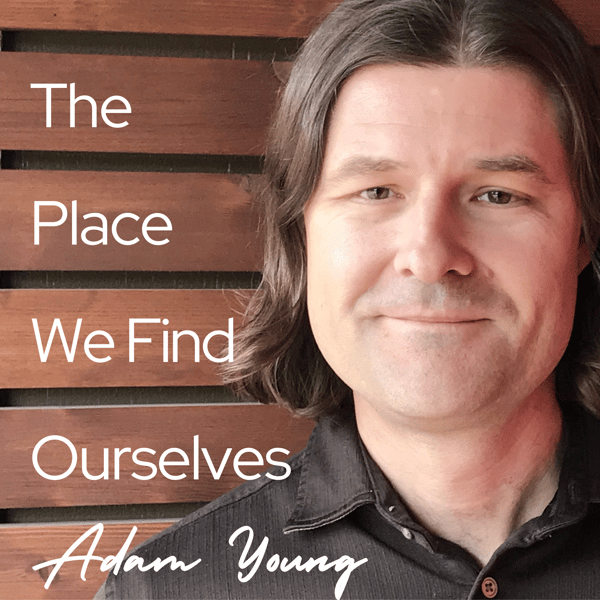107 Racial Trauma: What's Going On? Part 2
The Place We Find Ourselves
Adam Young
4.8 • 2.5K Ratings
🗓️ 28 February 2022
⏱️ 29 minutes
🧾️ Download transcript
Summary
This is part 2 of my interview with Wendell Moss about racial trauma. Today we continue to discuss the importance of naming what has been true of the past so that we might be free from it. We also begin to talk about what the path toward healing looks like, including the role of lament in the healing process.
Transcript
Click on a timestamp to play from that location
| 0:00.0 | You are listening to the place we find ourselves podcast. I'm Adam Young and this is part two of my interview with Wendell Moss about racial trauma. |
| 0:11.7 | Today we continue to discuss the importance of naming what has been true of the past so that we might be free from it. |
| 0:21.2 | We also begin to talk about what the path toward healing looks like, including the role of lament in the healing process. |
| 0:30.6 | Thanks so much for listening. Let's dive back into the interview with Wendell. |
| 0:36.6 | There was an article in Christianity today last year and it reported that only 42% of white Christians believe that the history of slavery continues to impact |
| 0:50.9 | black folks today and this is like just from a neuroscience perspective, Wendell. |
| 0:55.9 | This is deeply problematic given what neuroscience has discovered about how trauma affects the brain and the body. |
| 1:02.9 | So will you just share a little bit Wendell about what we know about trauma, how trauma affects the brain and the body. |
| 1:10.9 | Of people for generations to come. How is it passed on generationally? |
| 1:25.9 | Again to listen to my father, to see my father's face, to hear my grandmother, to hear the stories of the past. |
| 1:38.9 | To hear the stories, and to hear the son, be careful. |
| 1:45.9 | Here is what you need to be aware of. Here is the water you live in. |
| 1:50.9 | And so even in those stories, I bear their faces. I bear my father's anger and it's not a understanding you up to hate. |
| 2:03.9 | No, man, I am hearing the stories and seeing their bodies. |
| 2:10.9 | And so one, the fact that I take in their sorrow and their grief impacts my body. |
| 2:17.9 | So that will be a way that is passed on. Even for them how to prepare me, it enters my body and rightly so. |
| 2:26.9 | What I'm thinking is the work of Rachel Yehuda. If people want to learn more about how trauma is passed down generationally, Rachel Yehuda has done a lot of good work, especially with Holocaust survivors, showing how trauma affects the DNA of subsequent generations. |
| 2:47.9 | Even if that subsequent generation does not personally experience the particular trauma. |
| 2:54.9 | How did it come to that as a little little windale at a young age, would be questioning his own body? |
| 3:03.9 | Because I grew up in a pyramid like neighborhood, but when I moved to mixed neighborhood, it felt different in my body. |
| 3:11.9 | But that something was being communicated. |
| 3:15.9 | So again, I think we just turned ever genetics passing down from generation to generation. So again, how would my young body know what my father speaks? |
... |
Please login to see the full transcript.
Disclaimer: The podcast and artwork embedded on this page are from Adam Young, and are the property of its owner and not affiliated with or endorsed by Tapesearch.
Generated transcripts are the property of Adam Young and are distributed freely under the Fair Use doctrine. Transcripts generated by Tapesearch are not guaranteed to be accurate.
Copyright © Tapesearch 2025.

